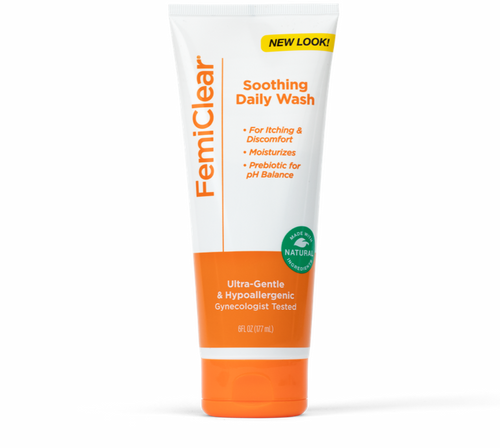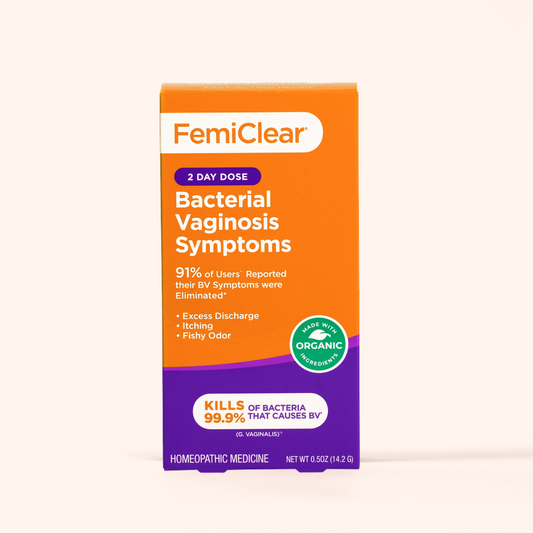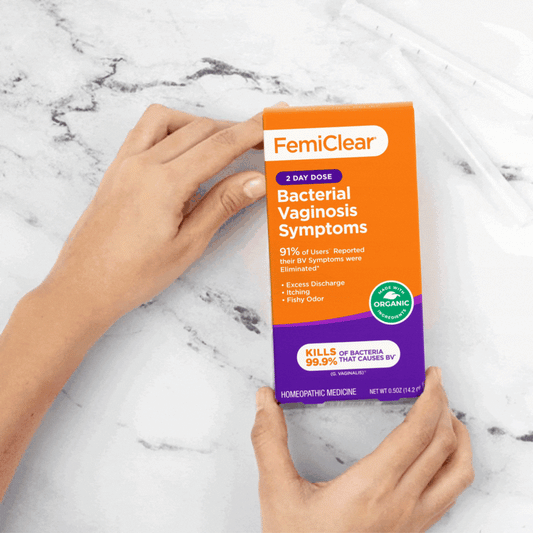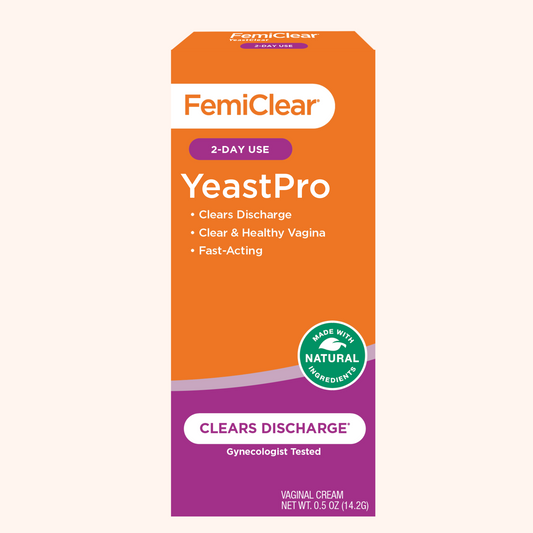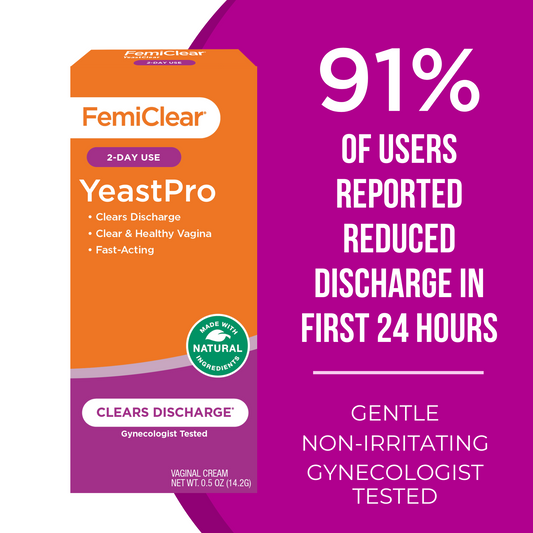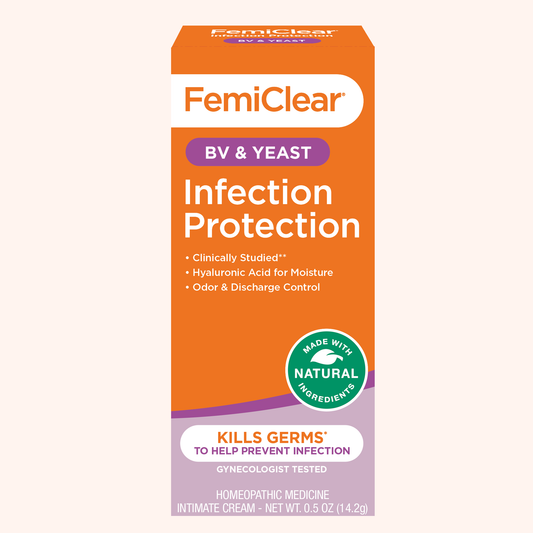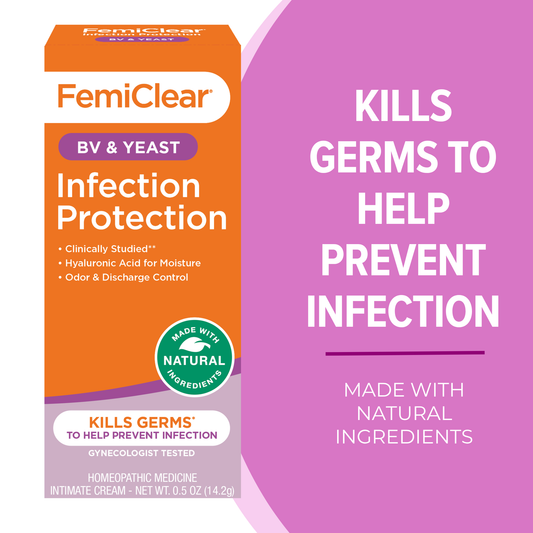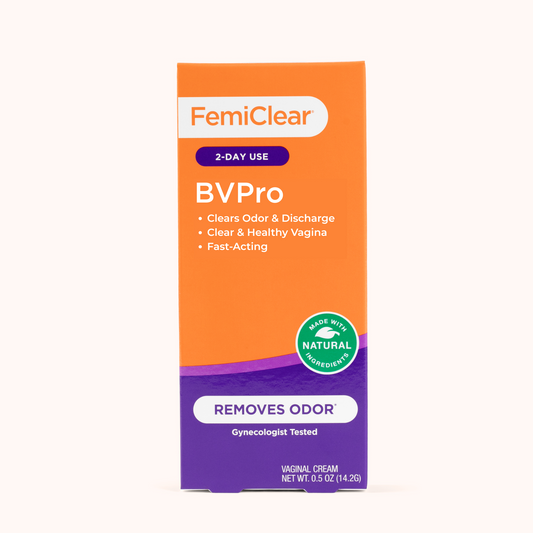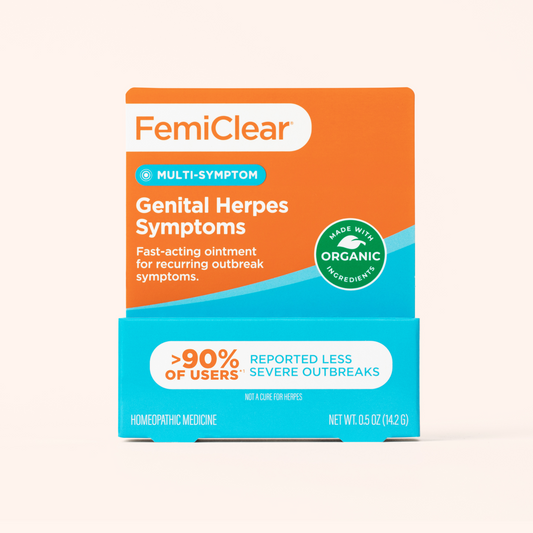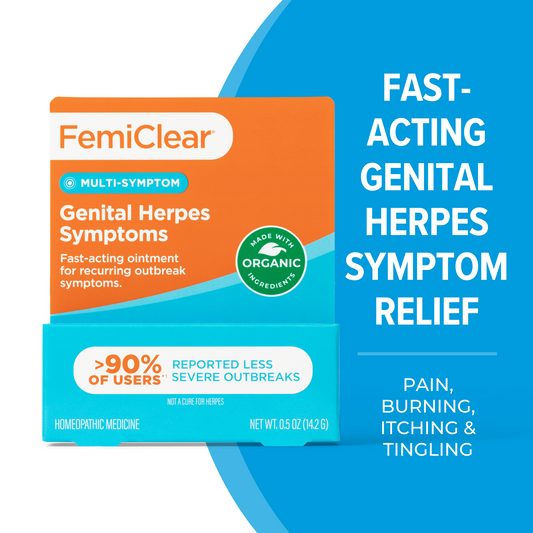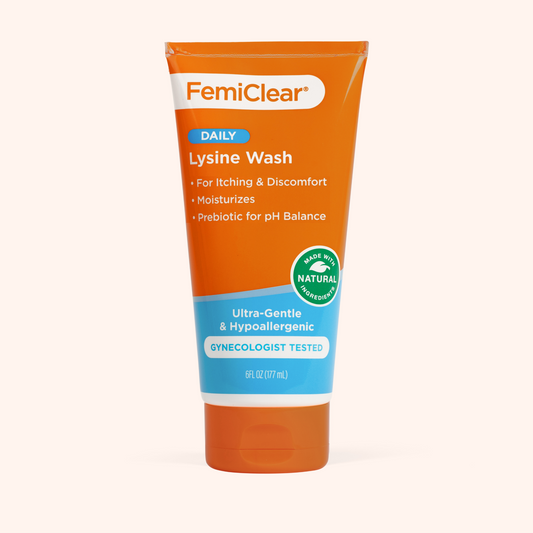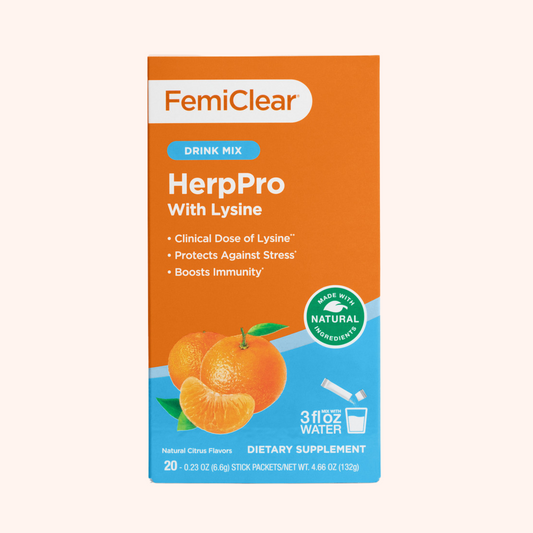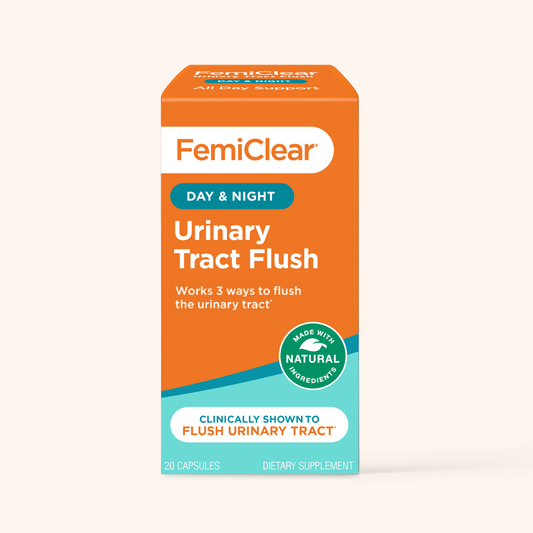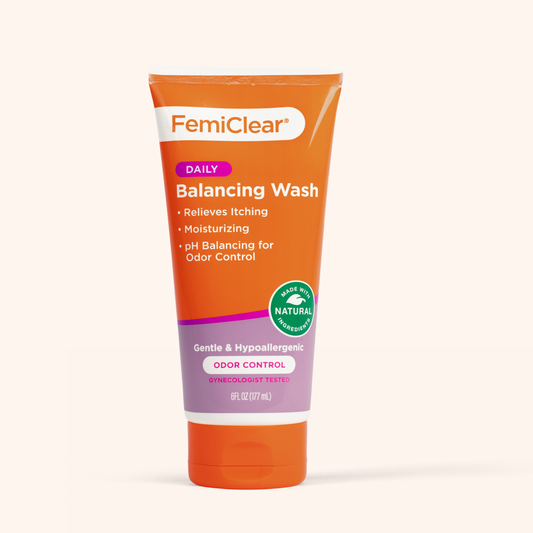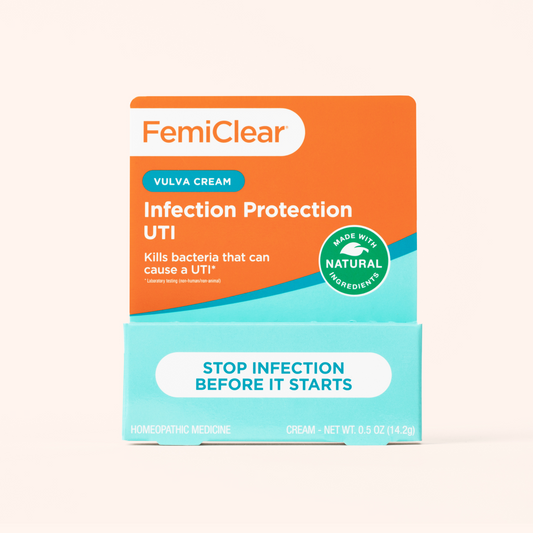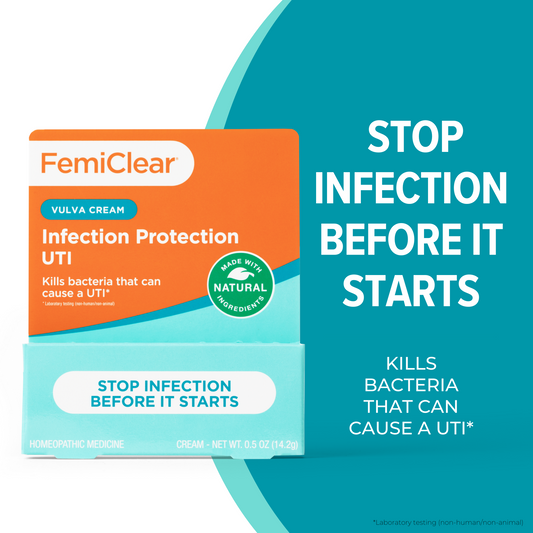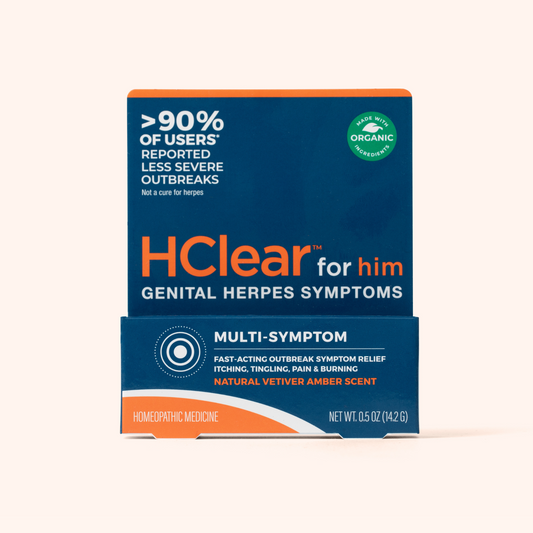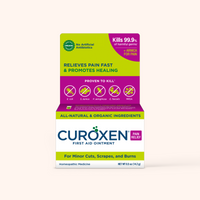Table of Contents
All About Your Vaginal pH Balance
Written by Julia Pelly, MPH Nov 29, 2022

The pH of every substance in your body can be measured on a scale from 0 to 14. On this scale, 7 is neutral, 0 is the most acidic, and 14 is the most basic. Understanding how to take care of your pH balance is crucial because your vaginal pH plays an an important role in preventing infections and ensuring day-to-day comfort.
Read on to learn more about what constitutes a normal vaginal pH balance, what happens when your vaginal pH is high, how and what happens when your vaginal pH becomes unbalanced, and what you can do to re-balance an unbalanced vaginal pH.
What is a normal Vaginal pH Balance?
While it may have been a while since you cracked open your high school chemistry books, understanding how to take care of your pH balance starts with knowing what’s normal.
According to the National Library of medicine, a healthy vagina generally has a pH level between 4 and 4.5 - this means that it is a little acidic. This level can change during different life phases and is often slightly less acidic before puberty and after menopause.
The acids in your vagina are produced both by the healthy bacteria that lives there and the vaginal fluid that your body secretes. These acids are important to your overall vaginal health because they kill harmful parasites, bacteria, and fungi that can cause infection and discomfort.
Signs of High Vaginal pH
During your fertile years (about ages 15-49), your vaginal pH should not be above 4.5. Levels above 4.5 provide unhealthy bacteria the perfect opportunity to grow and multiply. When your vaginal pH is high (remember, that’s anything above 4.5) you’re at risk for developing infections like bacterial vaginosis and Trichomoniasis.
Bacterial vaginosis is caused by an overgrowth of the bacteria that occurs naturally in the vagina. It’s the most common vaginal infection in women between the ages of 15 and 49 and causes uncomfortable and unpleasant symptoms including:
- Unusual discharge that may be green, white, or gray
- A fishy smell
- Burning with urination
- Vaginal itching
Bacterial vaginosis can be uncomfortable and unpleasant, is correlated with fertility issues, and can make you more susceptible to sexually transmitted infections.
Trichomoniasis is a sexually transmitted infection that does not usually present with any symptoms on its own but that can cause your body to be more susceptible to more serious infections like HIV. This infection is caused by a parasite that thrives in a vagina in which the pH is above healthy levels.
What Happens if Your Vaginal pH is Low?
Having a more acidic vagina does not typically result in discomfort or disease but it can make it more difficult to get pregnant. If you’re trying to conceive, this can be frustrating and upsetting. During sex, the vaginal pH rises temporarily. This occurs because sperm do best in a more alkaline environment. If your vagina is unbalanced and too acidic, the sperm won’t be able to effectively fertilize the egg.
What Causes Unbalanced Vaginal pH?
There are several possible factors that can result in a vagina that does not have a balanced pH. These can include:
- Douching
Douching is never recommended but remains a popular practice in the United States. According to the National Office on Women’s Health, around 1 in 5 women douche today. Introducing water, store-bought douching solutions, or home-mixed douching solutions into your vagina can increase your vaginal pH and contribute to the overgrowth of harmful bacteria.
- Antibiotics
Most doctors advise using antibiotics with caution as they kill all the bacteria in your body, not just the harmful bacteria they are targeting. Killing the good bacteria along with the bad can lead to an overgrowth of harmful bacteria.
- Hormonal Birth Control
Birth control pills can alter the vaginal pH for some people who use them which can create an opportunity for infection to thrive.
- Your Menstrual Cycle
Menstrual blood, which flows from the uterus to the vagina is usually more basic than the vagina itself. If this blood sits in the vagina, like in a tampon, or in contact with it, like on a pad, it can lead to raised pH levels in the vagina.
- Some Lube
While lubricants can make some people feel more comfortable during intercourse by reducing vaginal dryness, they sometimes have a pH higher than 4.5 which can reduce the quantity of healthy, helpful bacteria and lead to infection.
- Unprotected Sex
Semen is naturally alkaline - the introduction of semen into the vagina can sometimes encourage the growth of bacteria that can cause an imbalance.
- Scented Soaps and Harsh Intimate Care Products
Using scented soap and bath or intimate care products with harsh chemicals or added fragrance can cause an overproduction of the ‘bad’ bacteria in your vagina and lead to an imbalance.
Symptoms of an Unbalanced Vaginal pH
Typically, you won’t know that your vaginal pH is unbalanced until you begin to experience uncomfortable symptoms associated with an infection. Some symptoms of a Vaginal pH that is unbalanced include:
- A fishy or unpleasant vaginal odor
- Discharge that is gray, green, foamy, or thick and white
- Vaginal itching
- Swelling and/or irritation around the vulva
- Burning or pain with sex or urination
These are all symptoms of infections like bacterial vaginosis, and trichomoniasis.
Prevention Tips for a Healthy Vaginal pH
Taking care of your vaginal pH can help you avoid infection and the associated unpleasant symptoms. Some things you can do to help your vagina maintain the optimal pH include:
- Avoiding lubricants with a pH higher than 4.5
- Using a condom during sex
- Taking a probiotic regularly
- Using antibiotics and hormonal birth control with caution
- Changing your pad or tampon frequently during your period
- Avoiding douching
- Using a restorative feminine wash
- Avoiding harsh or scented soaps or other intimate care products
Correcting an Unbalanced Vaginal pH
When your vaginal pH is out of whack, you’ll probably want to get things under control as soon as possible. In addition to avoiding the things that can cause a vaginal pH imbalance and taking proactive steps to keep things balanced, there are several products that can help.
FemiClear’s Feminine Wash is designed to help soothe vaginal itching and irritation from multiple causes. Ultra-gentle and hypoallergenic, this intimate female wash is designed to cleanse, freshen, and moisturize to help relieve external dryness and discomfort. Because of its unique prebiotic blend, it is pH balanced and won't disrupt the natural vaginal pH.
Frequently Asked Questions about Vaginal pH
- What causes BV?
- What does different discharge mean?
Throughout the menstrual cycle it is normal to experience different types of vaginal discharge and to wonder what these types of discharge mean. At the beginning and end of your cycle your discharge may be white and sticky but is generally scant and does not make you feel uncomfortable. Around your fertile window it may be clear and stretchy. During other times, your vaginal discharge may be thin and watery. These sorts of vaginal discharge are all normal.
Other types of discharge may indicate an infection. Thick, white discharge that is accompanied by itchiness can be caused by a yeast infection. Some people prefer using a vaginal cream for yeast infection to help relieve symptoms quickly and gently.
Discharge that is gray, yellow, green, or frothy or that has a fishy or otherwise unpleasant odor is often the result of a vaginal infection like bacterial vaginosis (BV).
- What is feminine wash?
The best feminine wash is generally gentle, hypoallergenic, and made with natural ingredients. Our feminine wash is designed to cleanse, freshen, and help moisturize to relieve external dryness and discomfort. A pH balanced feminine wash can be used every day to help maintain a healthy vulvovaginal environment.
- How can you relieve BV symptoms at home?
A vaginal health product to relieve bacterial vaginosis symptoms is often top of mind for people who are experiencing the unpleasant odor and discharge. Luckily, BV symptom relief is available over the counter in drugstores and online. FemiClear’s 2-day dose for Bacterial Vaginosis Symptoms has been shown in independent accredited lab testing to kill 99.9% of the common bacteria that can cause BV.*
*An independent accredited lab performed an in vitro (non-human/non-animal) time kill study to measure the amount Gardnerella Vaginalis that was killed. An overgrowth of Gardnerella Vaginalis, can cause a bacterial vaginosis (BV) infection, but might not be the only cause. Data on file.
Written by Julia Pelly, MPH Nov 29, 2022

Soothing Feminine Wash
Daily relief from vaginal itching and irritation
Learn More